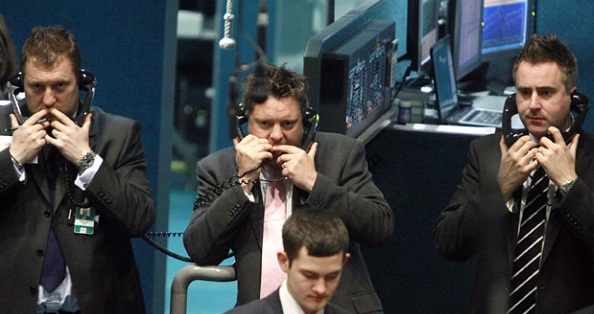
LONDON | UPDATE | Unanimously. The International Swaps & Derivatives Association resolved Friday evening the last unknown about Greece’s restructuring debt process. The Greek government used collective action clauses to drag a small group of investors into accepting losses under the nation’s laws. The association ruled that this could be considered as a credit event that triggers payouts on credit default swaps or CDS, a market whose participants were anxious while waiting for a final dictat that could render those contracts useless if not activated.
Lorcan Roche Kelly, chief Europe strategist at Trend Macrolytics, summed up the news:
“Cost of CDS trigger? €3 billion to €4 billion. Value of letting everyone to continue to hedge everything with CDS? Priceless.”
An auction to set the size of the payouts will be held on March 19.
The vice-president of the European Commission Olli Rehn on Friday sprinkled some nice words over the private sector participation in the Greek deal to lift more than €100 billion off its public debt bill.
“I am very satisfied by the large positive turnout of the voluntary debt exchange in Greece. This demonstrates the strong support for the accords reached in February on a second programme for Greece.”
Commissioner Rehn conceded in a press release that the contribution of the private sector was an ‘indispensable’ factor in any plans to ensure future sustainability of the Greek sovereign debt and, therefore, the financial stability in the euro area as a whole. Rehn said
“In doing so, investors recognise that Europe has committed an important amount of funds to this voluntary debt exchange and to the Greek programme to move forward. Indeed Greece’s international partners have made an unprecedented effort of solidarity to support Greece in its efforts to […] reform the economy and public administration, and thereby to return to growth and jobs.”
The European Commission will now watch how Greek authorities commit to the economic adjustment promises and implement austerity. But it better beware disgruntled investors, too. Although European currency and equity markets seem to have shown little reaction to the news that nearly 90% of its domestic debt holders have agreed to receive as little as 26% of face value, many participants hurt.
Jason Gaywood, consultant at currency specialist HIFX, said most investors saw the swap of their bond holdings for new ones with cut down profitability as
“the least bad option” and that “Athens can force the majority of remaining dissenters to take the deal by enforcing retroactive Collective Action Clauses.”
“So, what does this actually solve and what was the real motivation for the deal?,” asked Gaywood.
The debt restructuring aimed at reducing Greek government liabilities from 160% to 120% by 2020. But 120% of GDP is still a level of debt that HIFX described as ‘unsustainable’. And data aren’t helpful: Greece is in its fifth year of economic depression and has extreme budget cuts ahead. The Greek government and the European authorities should expect no end to the doom-and-gloom language coming from the markets. Gaywood’s is finely assorted:
“…the repeated measures being thrashed out across the EU appear to be far more politically motivated than borne out of recognised economic sound thinking. This debt swap and the recent flooding of EU banks with a trillion cheap euros smacks of a desperate face saving attempt by EU politicians to keep the increasingly Frankenstein like euro zone patient alive…”
“Sadly, most commentators recognise that Greece is probably past saving within the euro.”





Be the first to comment on "In Greek deal, commissioner Rehn praises investors but some feel scolded"